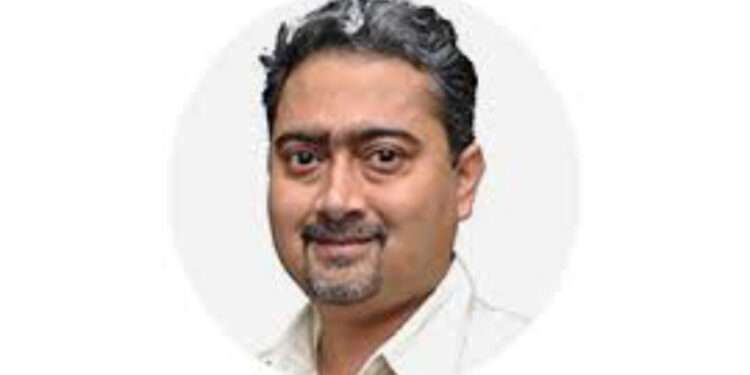Indians and global citizens against their country being militarily involved in the conflict
Mumbai: With peace talks on War in Ukraine gaining steam, the Ipsos survey on Global Attitudes to the War in Ukraine shows more number of Indians (54%) are hopeful of the war in Ukraine ending in 2025, as compared to 6 months ago (51%).
Similar trend was observed across most global markets – Indonesia (63% in April 2025 vs 56% in Nov. 2024), Thailand (51% in April 2025 Vs 36% in Nov. 2024), Italy (45% in April 2025 Vs 23% in Nov. 2024), South Korea (44% in April 2025 Vs 29% in Nov. 2024) – in 28 out of 30 markets, barring in two markets, where there was no change in views Malaysia (48% in April 2025 Vs 48% in Nov. 2024) and Sweden (22% in April 2025 Vs 22% in Nov. 2024).
In fact 28 countries out of the 30 countries covered in the survey were seen to be more optimistic about the war ending in 2025, compared to 6 months ago.
After all, the Ukraine war is in its third year – and highly prolonged.
Parijat Chakraborty, Group Service Line Leader, Public Affairs, Corporate Reputation, CSR and ESG, Ipsos India said, “US President Donald Trump during his election campaign had mentioned ending the war in Ukraine as one of his key priorities if voted to power. Trump has shown initiative in getting the peace talks between Ukraine and Russia to kick off in Turkey and the exchange/ swap of POWs has also taken place. Citizens across markets, including India are more optimistic of the Ukraine war ending in 2025 versus 6 months. Though if we look at the new developments, of new sanctions on Russia by the EU and UK and with Pope Leo X1V electing to mediate, Trump losing interest, things are still in a state of flux, until some consensus is reached and the war ends. Though positive feelers are appearing.”
The war in Ukraine will end in 2025 (chart)
Base: 23,216 adults across 29 countries, interviewed between 21 March and 4 April 2025.
Conflict zone
The war is in its third year, and the survey shows that 7 in 10 Indians (72%) and citizens across the markets polled, want their countries to avoid getting militarily involved in the conflict in Ukraine. While 70% global citizens held this view, the public sentiment against direct military participation was more pronounced in Hungary (87%), Thailand (84%), Malaysia (83%), Türkiye (82%) and Singapore (82%).
Western and northern Europe were less likely to feel their country should not get involved militarily.
In case of sovereign countries being attacked by other countries, at least 72% Indians and 65% global citizens hold the view that such countries should be supported by their country.
These are the results of a 29-country survey conducted by Ipsos on its Global Advisor online platform and, in India, on its IndiaBus platform, between Friday, March 21, and Friday, April 4, 2025. For this survey, Ipsos interviewed a total of 23,216 adults aged 18 years and older in India, 18-74 in Canada, Republic of Ireland, Malaysia, South Africa, Türkiye, and the United States, 20-74 in Thailand, 21-74 in Indonesia and Singapore, and 16-74 in all other countries.
The sample consists of approximately 2,000 individuals in Japan, 1,000 individuals each in Australia, Belgium, Brazil, Canada, France, Germany, Great Britain, Italy, Spain, and the U.S., and 500 individuals each in Argentina, Chile, Colombia, Hungary, Indonesia, Ireland, Malaysia, Mexico, the Netherlands, Peru, Poland, Singapore, South Africa, South Korea, Sweden, Switzerland, Thailand, and Türkiye. The sample in India consists of approximately 2,200 individuals, of whom approximately 1,800 were interviewed face-to-face and 400 were interviewed online.
Samples in Argentina, Australia, Belgium, Canada, France, Germany, Great Britain, Hungary, Italy, Japan, the Netherlands, Poland, South Korea, Spain, Sweden, Switzerland, and the U.S. can be considered representative of their general adult populations under the age of 75. Samples in Brazil, Chile, Colombia, Indonesia, Ireland, Malaysia, Mexico, Peru, Singapore, South Africa, Thailand, and Türkiye are more urban, more educated, and/or more affluent than the general population. The survey results for these countries should be viewed as reflecting the views of the more “connected” segment of their population.
India’s sample represents a large subset of its urban population — social economic classes A, B and C in metros and tier 1-3 town classes across all four zones.
The data is weighted so that the composition of each country’s sample best reflects the demographic profile of the adult population according to the most recent census data. “The Global Country Average” reflects the average result for all the countries and markets in which the survey was conducted. It has not been adjusted to the population size of each country or market and is not intended to suggest a total result.
When percentages do not sum up to 100 or the ‘difference’ appears to be +/-1 percentage point more/less than the actual result, this may be due to rounding, multiple responses, or the exclusion of “don’t know” or not stated responses.
The precision of Ipsos online polls is calculated using a credibility interval with a poll where N=1,000 being accurate to +/- 3.5 percentage points and of where N=500 being accurate to +/- 5.0 percentage points. For more information on Ipsos’ use of credibility intervals, please visit the Ipsos website.






























